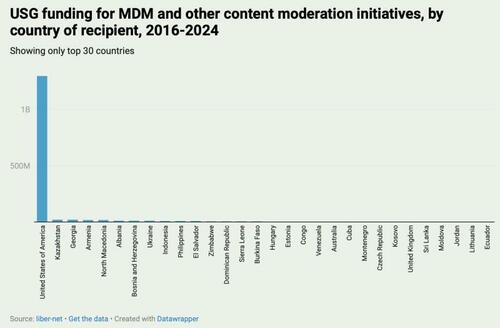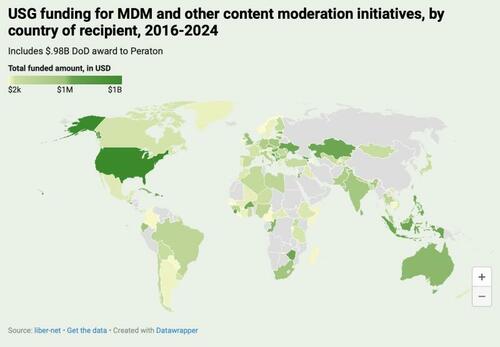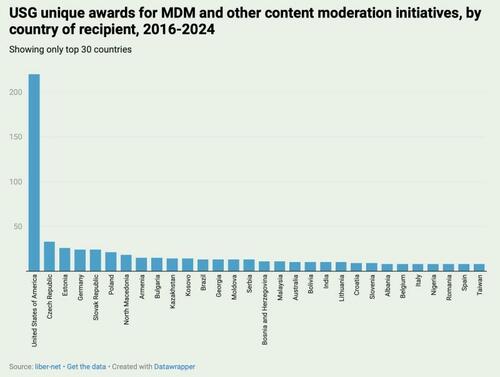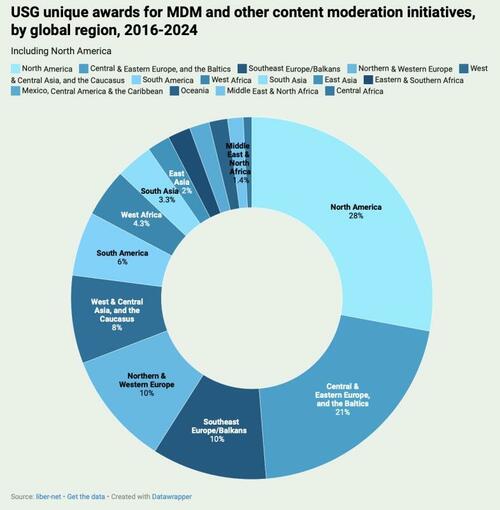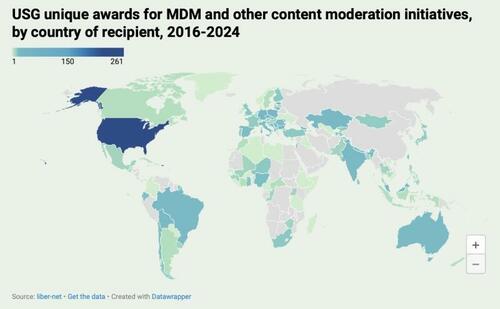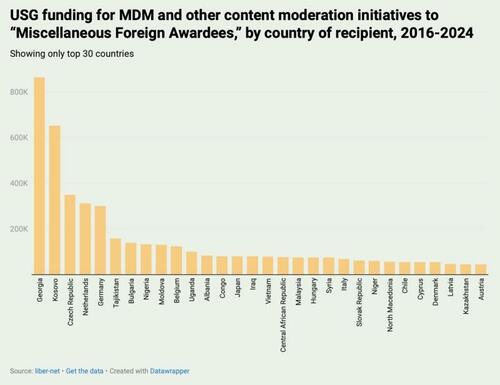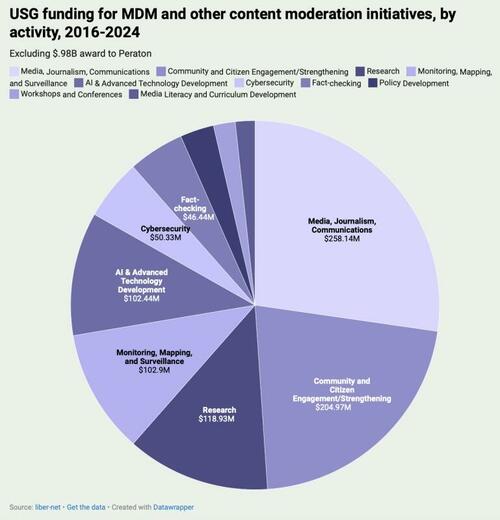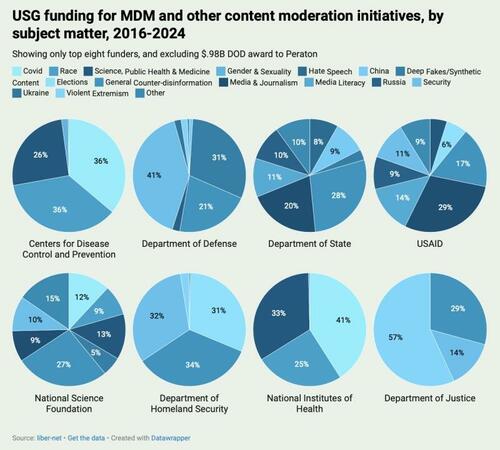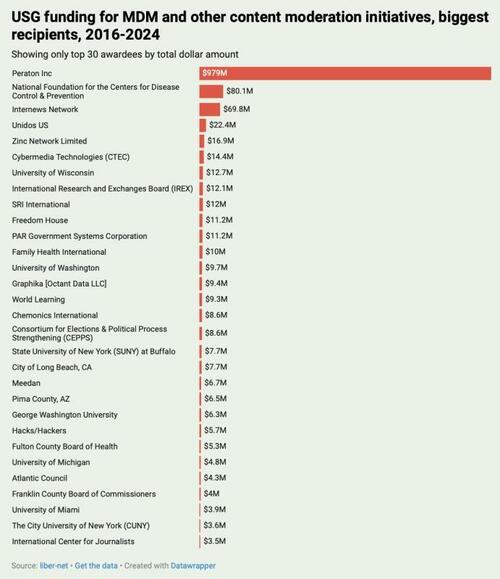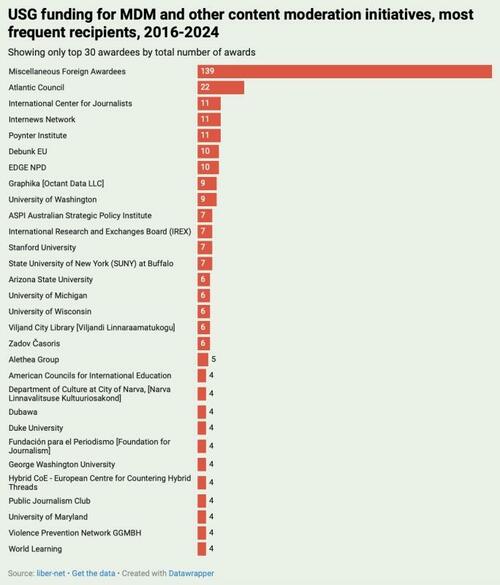Authored by Andrew Lowenthal via The Brownstone Institute,
Last week, my non-profit liber-net unveiled a new database of US government awards to mis-dis-and-malinformation (MDM) and other content control initiatives. A previous Network Affects post broke down where that money came from. This one details where the money went, specifically the countries, regions, topics, and activities, and the top organisations that took home the cash.
The below graphs are based on 867 awards made between 2016-2024, out of nearly 1,100 that we reviewed from 2010 to the present day. You can review our process and methodology here. You can see all the graphs from the last post, this post, and a few more here.
When it comes to MDM funding, the vast majority of the awards went to US-based initiatives. The graph below includes a contract totaling nearly $1 billion to military contractor Peraton, but even without it, US recipients received around $318 million, dwarfing the next country, Kazakhstan, at $20 million. Out of the nearly $1.5 billion spent across the 867 awards, around $187 million left the US from a roughly $6.7 trillion annual federal budget.
The “US taxpayers are wasting money on foreigners” narrative isn’t the story here, at least not in the mis/disinformation space.
When you zoom out, it looks like this:
That said, when you look at the data by unique awards (individual grants and contracts made), American organisations are still the main recipients, though it isn’t quite as skewed – US organisations received 220 of the 867 awards made.
Looking at unique awards is important in part because of the internal government resources and focus it represents. Giving out money costs money, whether it is $1,000 or $1,000,000.
Below, we’ve broken the individual awards down by region. After the US, Central and Eastern Europe and the Baltic states are the main focus areas, mostly as a counter to Russian influence.
Here are the unique awards on a map:
Another interesting view is which countries the “Miscellaneous Foreign Awardees” awards went to. These are awards where the organisation is not explicitly named (this can be for security justifications or a host of unknown reasons), though in some cases it is easy to deduce what the organisation is (e.g., through the awardee address that is sometimes referenced in the USAspending record).
This is how the Misc. awards break down by country outside the US:
You can view the Misc. awards in our searchable database.
What topics did the money go to? The below outlines our analysis of the major themes. Note that while this is a pie chart, we’ve tagged individual awards with more than one topic as they were frequently combined, such as vaccine “misinformation” in minority communities.
This is how it breaks down among the top eight funders:
We have also classified the awards by the types of activities they entailed, such as conferences, research, or technology development. These were often a little harder to classify, but the general outline is still useful in understanding what “counter-misinformation” work looks like in practice.
Lastly, who got most of the money?
The two visualisations below detail the top 30 awardees by dollar amount and by the number of individual awards. The $80 million award to the CDC Foundation is a kind of internal transfer the CDC gave to a technically external (but heavily linked) 501(c)(3).
And the unique awards which reveal some more familiar names and close government relationships. The number of awards doesn’t correlate too tightly with the overall funding received.
You can find explore and find more in the database. Enjoy!
Republished from the author’s Substack
Loading…



